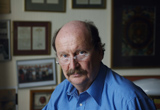 Blaise Pascal (1623-1662) argued that, because it is impossible to either prove or disprove the existence of God, it would be best to wager in favour of his existence. In case one got it wrong, little would be lost; in case one was correct, everything was gained.
Blaise Pascal (1623-1662) argued that, because it is impossible to either prove or disprove the existence of God, it would be best to wager in favour of his existence. In case one got it wrong, little would be lost; in case one was correct, everything was gained.
The same logic seems to be employed by many consumers/patients who apply it to alternative medicine (AM). Here the argument often is as follows: Because we cannot be sure whether AM is effective, it is best to try it anyway. In case it does not work, little is lost; in case it does work much is gained.
This line of thinking is not only common, it also seems to be “a safe bet”—on the surface, that is; once we analyse it a bit closer, it falls apart. Let’s assume we are talking about a cancer patient who wants to leave no stone unturned to cure her cancer. Why should she not try AM?
As soon as our patient has answered the question in the affirmative, another one crops up: Which form of AM? There are hundreds of alternative cancer “cures.” Since one is as unproven as the next, our patient would have a hard time deciding which ones to try. Applying all simultaneously or consecutively would be “betting on the safe side,” but is not a realistic option. If nothing else, it would be unaffordable.
Another flaw in the argument relates to the fact that, unlike the existence of God, we are entirely capable of finding out about any treatments and its effects on cancer. That’s what clinical trials are designed for; and if no studies are available for any given “cure,” that probably means that it is not worth the effort of testing the claims that are being made for it. Alternative cancer cures are alternative for a reason: they are implausible, so much so that the chances of them doing more good than harm approach zero.
Many treatments are also by no means free of risks. Therefore it is not true to assume that “little is lost” in case they do not work. Direct harm can occur through the interactions of some form of AM with prescription drugs, for instance. But the potential for indirect harm is much more important. Here the risks range from raising false hopes or financial exploitation to undermining rational thought in a general sense.
By far the biggest danger, however, is that AM is used as a replacement of effective treatments. Most patients do not approach AM with the intention to give up conventional medicine. But AM practitioners can be most persuasive and some over enthusiastic therapists clearly do try to convince their patients to abandon life-saving treatments.
Pascal’s Wager was highly disputed when it was first formulated. As a result of the ensuing discussions, we made significant advances, for instance, in the area of probability theory. If we apply the wager to healthcare, I am afraid, we will make no advances and might even do significant harm.
Edzard Ernst is a professor of complementary medicine at the Peninsula Medical School, Exeter.